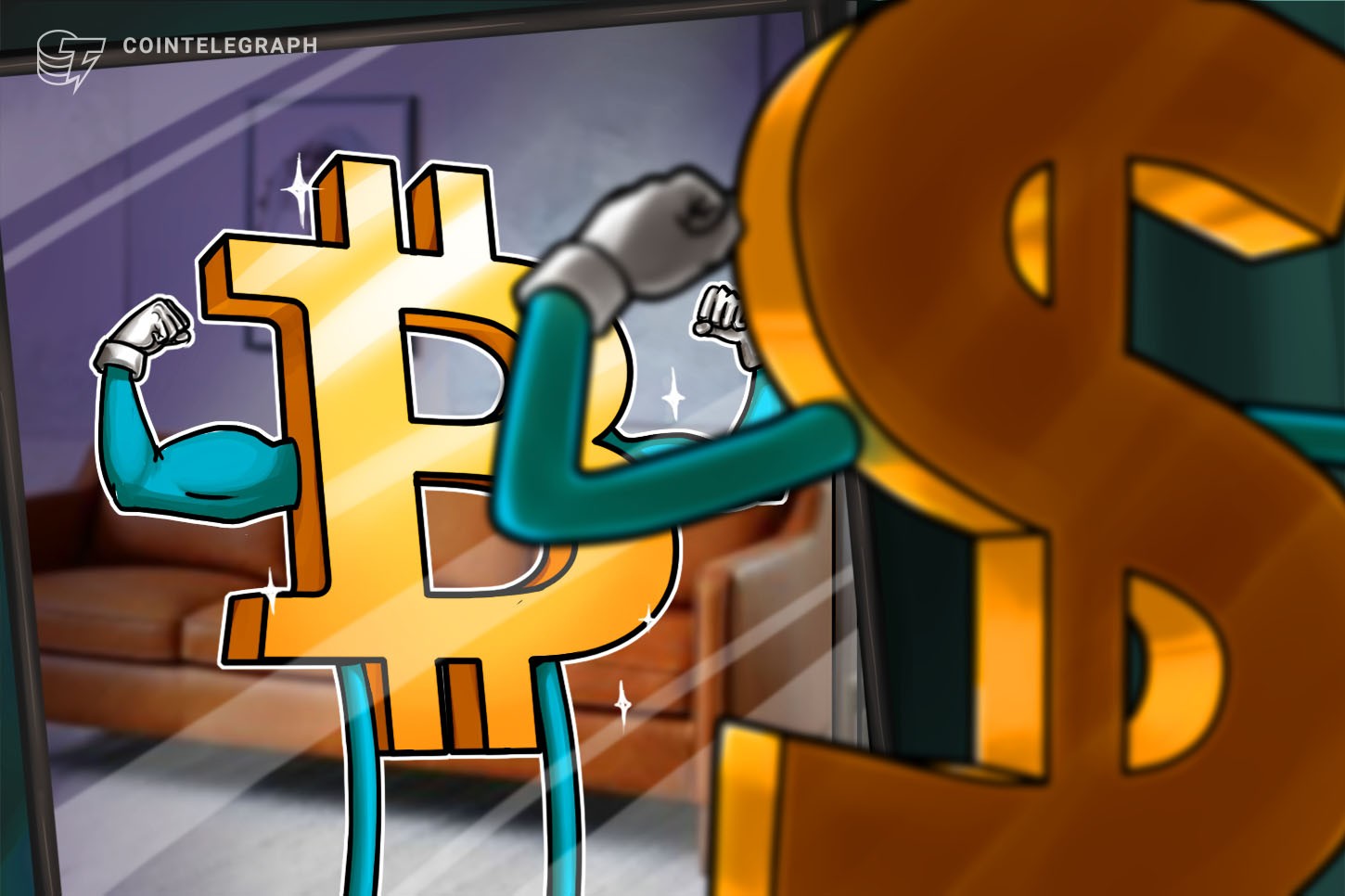The S&P 500 slid to the intraday highs of Sept. 2 while Bitcoin (BTC) climbed to its highest levels in more than three months. The moves came as a key report on Sept. 3 showed that the United States economy added fewer jobs than anticipated, lowering the Federal Reserve's likelihood to start unwinding its stimulus program this year.
The U.S. Bureau of Labor Statistics revealed that nonfarm payrolls (NFPs) grew by 235,000 in August, against expectations of 733,000 positions. Nevertheless, the unemployment rate inched lower to 5.2% from the previous month's 5.4%.
OUCH! US economy adds just 235,000 jobs vs 733k expected, slowest gain in 7mths amid Delta surge. At least prior mth revised higher to 1053k from 943k. The unemployment rate falls to 5.2% as expected. Average hourly earnings were above expectations, rose 0.6% MoM vs +0.3% exp. pic.twitter.com/gQJHLAb54Z
— Holger Zschaepitz (@Schuldensuehner) September 3, 2021
Delta variant FUD behind Bitcoin pump?
The hospitality and leisure sector saw no job gains in August, in contrast with its average increase of 350,000 positions per month over the previous six months. Meanwhile, the restaurant sector lost 42,000 jobs, signaling fears about the fast-spreading Delta variant of COVID-19.
Bitcoin rose by 3.41% to $50,961 in anticipation that a slowdown in the U.S. jobs sector would prompt the Federal Reserve to limit its taper tantrum.

The world's best-known cryptocurrency struggled in the second quarter of 2021 amid a global economic rebound from the pandemic. It fell from around $65,000 to below $30,000 after facing additional headwinds from a full-fledged crypto ban in China and Elon Musk's anti-Bitcoin tweets.
At the same time, the global economic recovery raised speculations that central banks would unwind their massive monetary support. In the U.S., Federal Reserve Chairman Jerome Powell said that the Fed would begin tapering by the end of 2021 if the economy achieves "maximum employment."
But the Delta variant keeps denting hopes of a steady economic and labor market recovery. Moreover, Sept. 3's job data hints that the U.S. central bank will need to continue its $120 billion per month asset purchase program.
The outlook stressed the U.S. dollar lower and sent non-yielding hedging assets like Bitcoin and gold higher.

"The cross-over above the $50,000 price mark has revealed two crucial discoveries for the digital currency," said Petr Kozyakov, co-founder and CEO of payment network Mercuryo.
"One is that the premier cryptocurrency still has the inherent features that attract investors and buyers, and secondly, the increased price valuation has not yet eliminated the volatility that surrounds the digital asset."
Kozyakov anticipated that loose monetary policies, coupled with Bitcoin's growth as a recognizable financial asset on Wall Street, would push its prices to $55,000 in the near term and $70,000 in the long term.
Unemployment benefits expiring soon
The extremely weak NFP report came just days before the scheduled termination of federal unemployment benefits that the U.S. administration put in place to cushion the economic damage caused by the pandemic.
Moreover, additional aid that gives unemployed Americans $1,200 per month will expire on Sept. 6. That will effectively remove aid to about 7.5 million people as Delta variant cases are rising in parts of the United States.
Goldman Sachs noted that unemployment benefits also kept Americans from applying for jobs throughout July. The banking giant forecasted the Sept. 6 termination to raise nonfarm payrolls to 1.5 million by the end of 2021.
The next Federal Reserve meeting will take place in mid-September and is expected to shed more light on the Fed's taper plans in light of the weaker NFP report.
The views and opinions expressed here are solely those of the author and do not necessarily reflect the views of Cointelegraph. Every investment and trading move involves risk, and you should conduct your own research when making a decision.
This article does not contain investment advice or recommendations. Every investment and trading move involves risk, and readers should conduct their own research when making a decision. While we strive to provide accurate and timely information, Cointelegraph does not guarantee the accuracy, completeness, or reliability of any information in this article. This article may contain forward-looking statements that are subject to risks and uncertainties. Cointelegraph will not be liable for any loss or damage arising from your reliance on this information.


